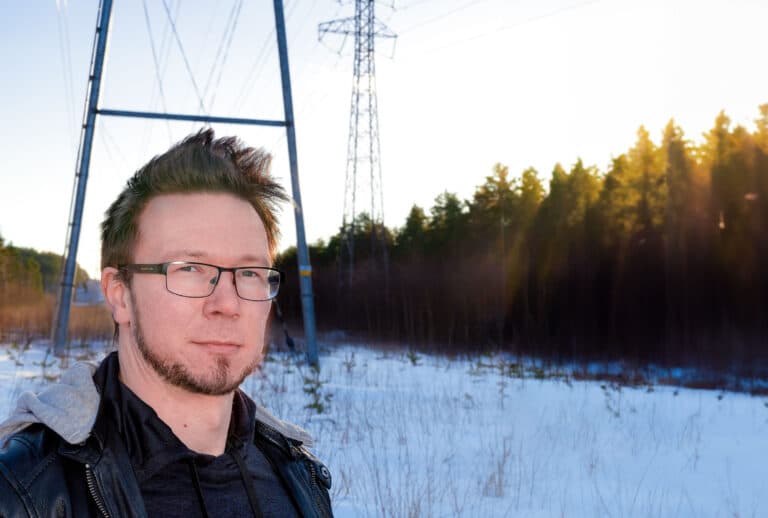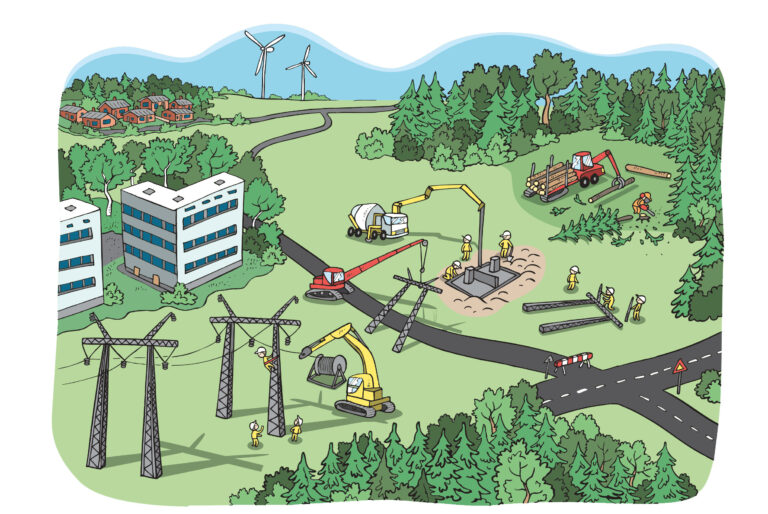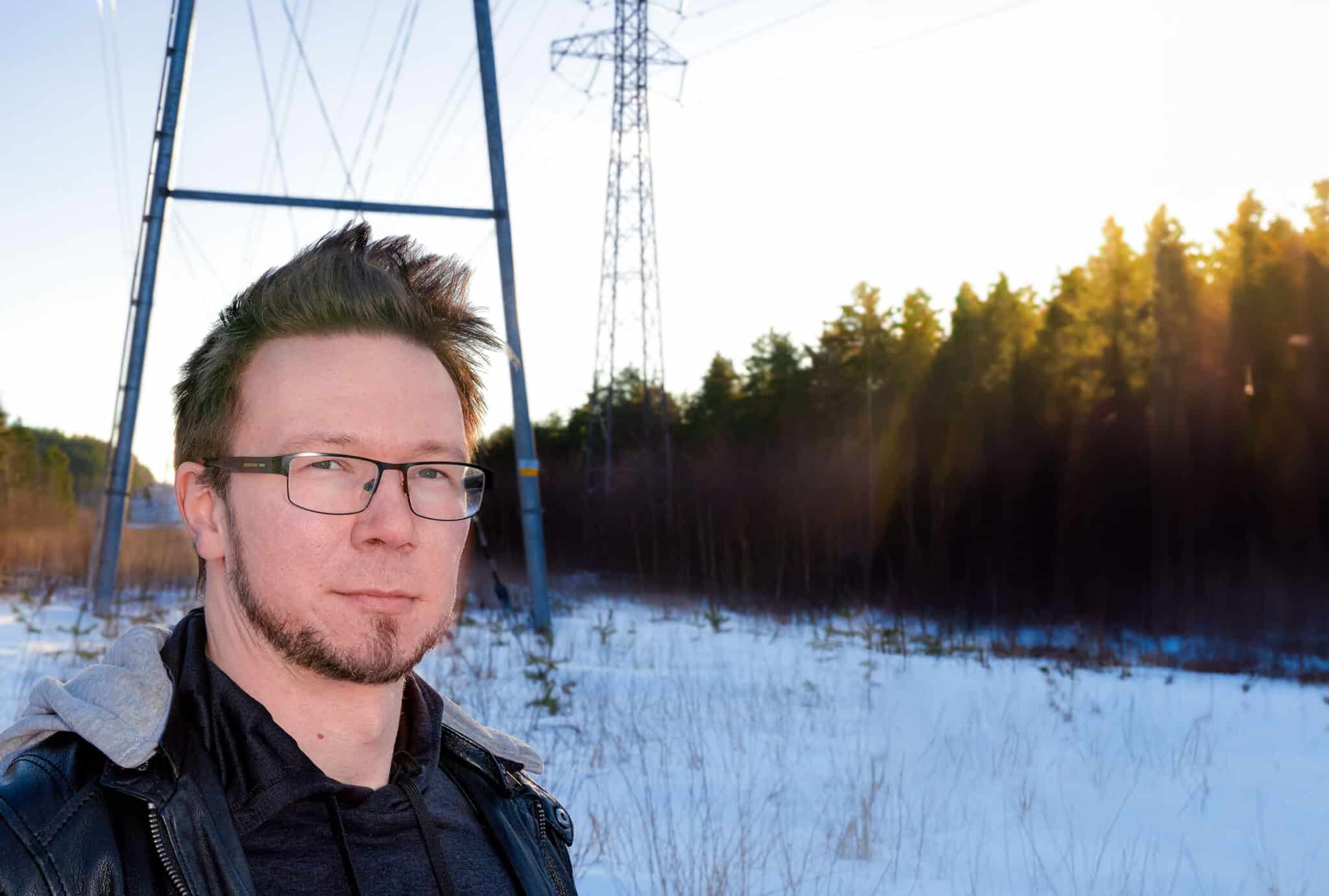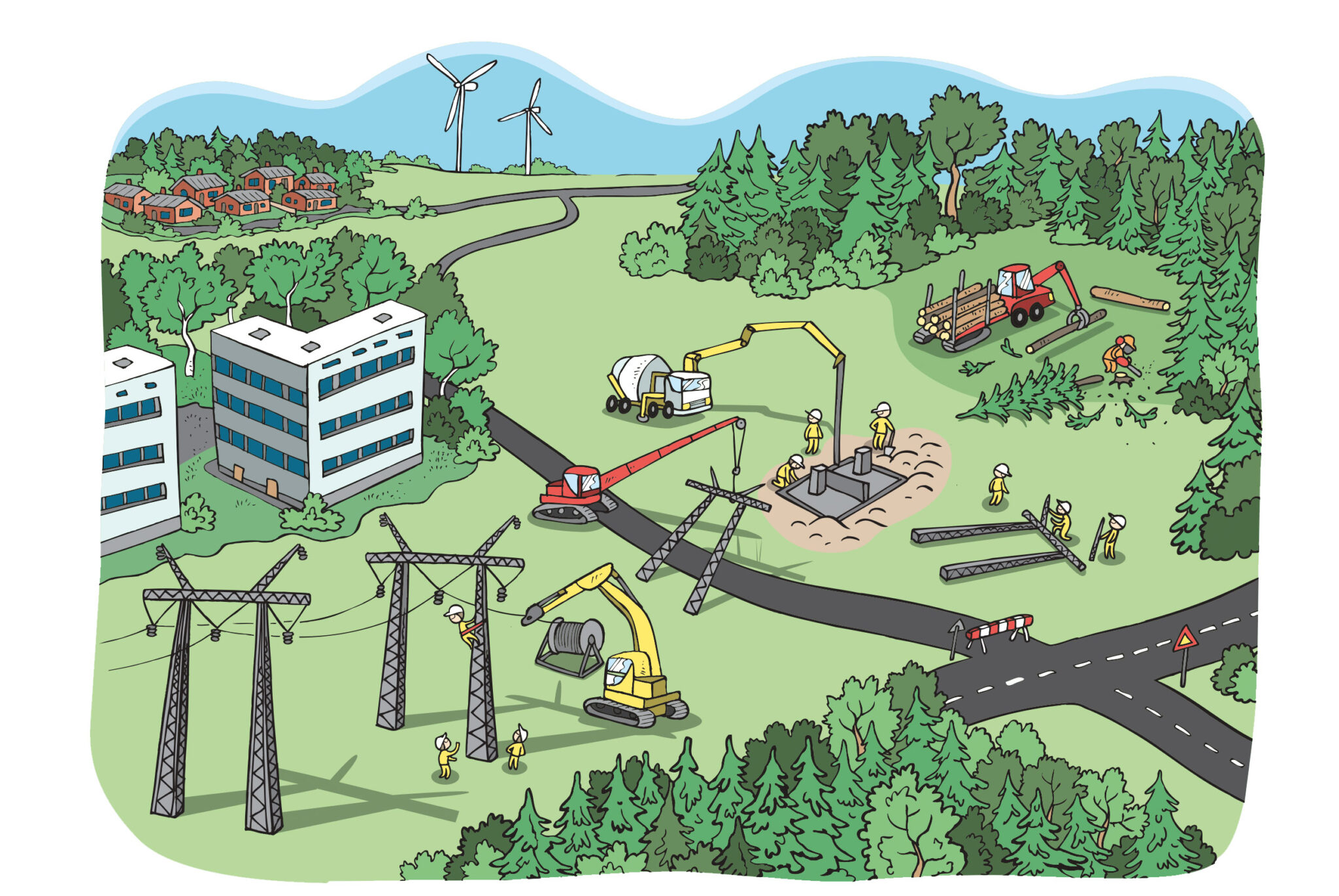 Fingrid’s Chief Financial Officer Jan Montell, who is responsible for the company’s strategy process, confirms that growth in renewable energy will bring new and completely different actors to the market.
Fingrid’s Chief Financial Officer Jan Montell, who is responsible for the company’s strategy process, confirms that growth in renewable energy will bring new and completely different actors to the market.
“In the future, more energy will be produced locally and in a decentralised manner, for example, in small solar and wind power plants. Consumers will generate their own electricity and sell the surplus to the grid. The role that grid companies play in power system management will increase when electricity comes from a larger number of small suppliers.
He also reminds us that solar and wind power are not always available consistently, which makes this kind of system more challenging.
A controlled transition to a new system
Montell emphasises that it’s important to move to the new system in a controlled manner. He also believes that we are not quite on the right track at this time.
“Strong subsidisation of wind power has forced the closure of balancing power sources, such as condensing power plants that operate according to market terms. We currently have plenty of electricity under normal conditions, but problems may occur during periods of severe cold weather.
Optimisation, energy storage, transmission connections
Montell expects optimisation of energy consumption to be even more important in the future.
“Smart grids will allow us to monitor electricity consumption at all times and find savings. For example, electrical devices will be disconnected from the grid whenever possible. Digitalisation will also create completely new types of businesses, some of which are still beyond our imagination.
Large electricity storage facilities, for example, will have a greater role. The energy sector is eagerly awaiting further development in battery technology.
Of course, Finland will not be alone and our country’s electricity system will continue to be closely linked to neighbouring countries in the future. Continuous development is needed with regard to cross-border transmission connections and fault repairs. Europe also has to agree on common rules related to power system management and transmission.
Fingrid is an enabler
The importance of electricity is growing – and society’s electricity dependence and vulnerability is increasing at the same time.
“Fingrid will be the final balancer, with the task of ensuring that electricity is in the right place at the right time.”
According to Montell, Fingrid’s strategy takes global trends into consideration in many ways.
“For example, Fingrid’s role is to serve as an enabler. We provide a platform that others can use to build their own systems. Our strategy calls for stronger networking with different actors.”
The energy industry has traditionally been quite conservative. Once a power plant was built, it was used to produce energy for decades. However, the new energy world is characterised by speed and agility.
“Fingrid’s strategy also emphasises agility, trying new things and faster operations. Digitalisation means improving and increasing the efficiency of our own processes and continuous development of the customer experience.”







